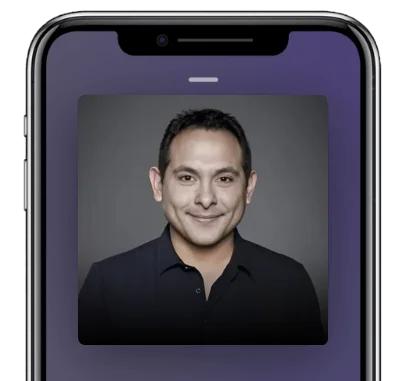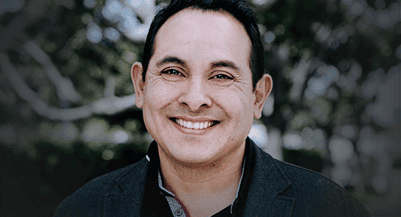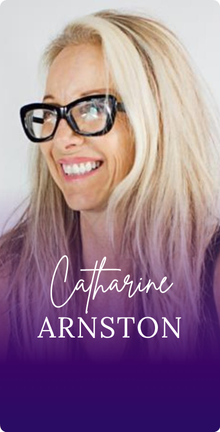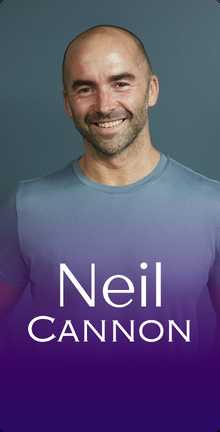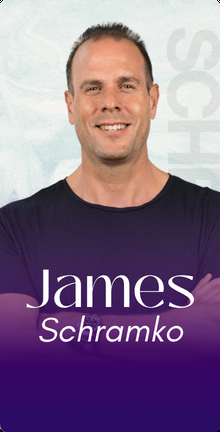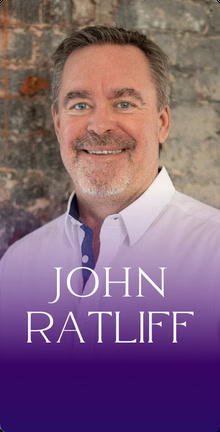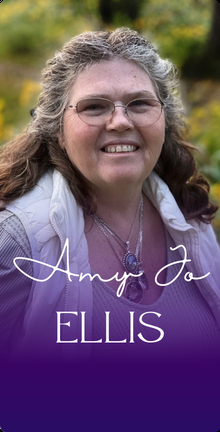In this Episode
- [00:40]Stephan introduces Don Miguel Ruiz Jr. as today’s guests and explains that this episode is going to be about personal transformation and self-exploration.
- [02:50]Don Miguel Ruiz Jr. shares their family tradition that started with his grandmother and father, Don Miguel Ruiz.
- [09:35]Don Miguel Ruiz Jr. tells the story of how his father started taking him to their family’s classes at the age of 12.
- [18:03]Stephan points out some challenging experiences he went through and remembers his wife, Orion’s words, “everything is a gift. sometimes the bow is just at the bottom.”
- [26:35]Stephan and Miguel Jr. moves on to the topic, how to let go of attachment and gain more control of yourself from succumbing to bad habits.
- [35:15]Don Miguel Jr. and Stephan share the things that help them stay grounded.
- [40:30]Stephan asked Miguel Jr. how to let go of perfection, where Miguel Jr. quoted Dave Grohl as a perfect example.
- [43:45]Stephan asked Miguel Jr. to shed more light on The Five Levels of Attachment.
- [52:20]Don Miguel Ruiz Jr.’s shares his list of favorite books and documentaries.
- [58:35]What Miguel Jr. recommends the listeners read first out of his authored book collection.
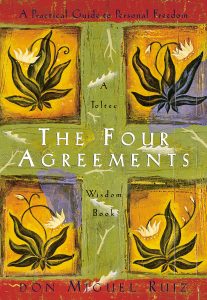
Don Miguel, it’s so wonderful to have you on the show.
Thank you so much for having me, Stephan. It’s really an honor to be here in your program.
It’s an honor for me.
Congratulations on your baby.
Thank you so much. It’s a beautiful gift from the universe. He is a miracle baby. First of all, I would love to get a sense for how you have this incredible family tradition, where not only is your father this accomplished, powerful writer and sharer of wisdom that many of us already have known of from the book, The Four Agreements, but also you’re an author, your brother’s an author. You have so much wisdom in the family to share. The books just keep coming. It’s amazing. Can you share a bit about this family tradition and where all this wealth of wisdom comes from?
Sure. I’m basically honored to be part of a family of healers. My father is a great man. I think he has learned a lot about his ancestors through his own practice. You can say that the spearhead of the family has been my grandmother, Madre Sarita, my father’s mom. Even though she passed away 12 years ago, she’s still the head of the family in the spiritual sense. She is the one that had this strong desire to share the family tradition outside of the family.
My father is a great man. He has learned a lot about his ancestors through his own practice.
My father is the apprentice to my grandmother, Madre Sarita. My grandmother was the apprentice of her father, Don Ronaldo. He was born in 1883. He was a soldier during the revolutionary war. Imagine raising a child during the Mexican revolution. His father, Don Esiquio Macias, was 53 years old when Don Ronaldo was born. He was born in 1831. He was the first Mexican in the family. Before that, we didn’t know the name of his parents. They were subjects to the King of Spain because it was part of the new Spain. Don Esiquio, you can say that’s he’s the one who started it. Give it with a grain of salt if it’s true or not but he’s the one that says that.
When he started teaching, he was very much that old traditional Nagual, the Shaman look with the big hat and everything, the little pictures that we have of him. His story was of tricksters and stories that he shared, but he shared it with very few members of the family. He shared it only with his friend, Dandara, but very few people within the family because it was still somewhat taboo to talk about anything outside the Catholic tradition in Mexico at that time. The holy inquisition no longer existed or at least had power in Mexico but the shadow is still there. It was taboo to talk about anything outside of it. It stayed within the family.
Focus your attention on what you’re doing
His son, Don Ronaldo, took a different direction. He was a soldier and a bandleader. His life was more disciplined and more of a straight-to-the-point attention. Focus your attention on what you’re doing as a musician and as a soldier. He taught the traditions in his own unique way, based on a combination of Don Esiquio and his own.
That taboo still existed but not as powerful as it was during Don Esiquio’s lifetime in the 1800s. He still didn’t teach outside the family much. He kept it within the family, shared it with some of his grandsons, great-grandsons, sons, and just kept it like that.
One of his apprentices was my grandmother, Madre Sarita. She rebelled against the tradition. I guess you can say Don Ronaldo also rebelled. If Don Esiquio was that trickster kind of guy, the stereotypical Shaman, Don Ronaldo went the opposite. He was a soldier. Madre Sarita also went her own way until she lost her son and she got sick. She had an experience where she questioned everything. She went back to the one person she trusted about these things which were her father, Don Ronaldo.
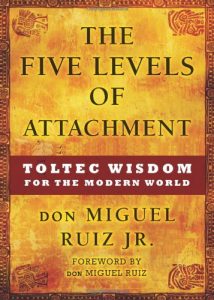
From there, she began practicing the tradition in her unique way. Because she was healed by a faith healer, curandera, she continued to practice that as well. She engaged in faith healing, curanderismo, and practiced what her father and her grandfather taught her. She began to heal people.
At that point, thanks to President Lázaro Cárdenas in the 1930s–1940s, where he put a presidential decree that he wanted more traditional music in Tijuana because, at that time, Tijuana was more geared towards the American tourists. The band leader that led that band that President Lázaro Cárdenas requested was my grandfather. From Quila, Jalisco, which is a small town outside of Guadalajara, a small little pueblo, they moved to Tijuana, and eventually made their way in San Diego, where she worked for the State of California doing faith healing.
She opened up a little temple, and at the same time, she worked for the State of California. She did that because she had a strong desire to share the tradition outside the family. She wanted to share it with as many people as she could. She healed people, she did her Relaciones, her faith healing. Every Thursday and every Sunday, she would give a sermon, a catara as she called it, where she would talk to the community. It’s similar to a mass but in her own unique way. She shared the tradition.
It is under that backdrop that when I was a kid, my grandmother was in full-fledged doing that. She was the first celebrity in the family. I mean celebrity only because she became popular. A year before her death, she was inducted into the Women’s Hall of Fame for continuing the tradition. Growing up, she was the spiritual head. We would all go on Sundays, sometimes on Thursdays, to listen to my grandmother give the sermon, and my grandfather, Don Luis.
Having a moment of clarity can change your whole perspective.
I grew up with that mentally. Anyone who grew up with a priest, a minister or a rabbi in their family may understand how I grew up. I would go to these sermons. I would go to these lectures. When my father had his ‘aha’ moment, he rebelled against the tradition as well. He became a neurosurgeon. He had a moment of clarity that changed his whole perspective which he wrote about in his books. He came back to the family tradition. He let go of being a medical doctor. He focused because he wanted to learn. He wanted to understand how the human mind works, but he really was engaged because of his experience, his ‘aha’ moment.
When my father came in, this was 1984–1986, he began to apprentice with my grandmother. When my grandmother heard and saw that her son was interested, she created a little group called the dreamers. She taught them all how to meditate. In our tradition, what we called dreaming, learn how to dream and control it. Little by little, he got better and better. He began to take me to his classes. As he was an apprentice, he started taking me. I was 12 years old at that time. I had very little interest in it but I went because I love my papa and I remember my grandma. It’s part of the whole thing. It’s part of the tradition.
When you love and respect yourself, there is no way that you will ever allow anyone else to disrespect or dishonor you. Share on XMy father began to take out some of the superstitions that are in the tradition. He tries to get to a point where he calls common sense which is the tradition without any distortion, without any superstition, and gives you the core. In those beginning years, there are a lot of superstitions that surround the family, and a lot of fanaticism as well. He cleaned it up as much as he could and the result of that is now in The Four Agreements. That’s basically what he learned from Don Ronaldo, Don Esiquio, and Madre Sarita. The Four Agreements, The Mastery of Love, and all these books are the end result of him taking out as much as he could of all the superstitions and taught it.
He just started coming out of that shadow and doing it to his own unique way
When he first started, he was under the shadow of my grandma, Sarita. Little by little, he just started coming out of that shadow and doing it to his own unique way to the point where he is now the focal point of the family. He is the one renowned to a certain degree. He’s the elder statesman along with my uncles, Don Carlos, Luis, Jaime, and Ronaldo. The five remaining of the 13 children of my grandmother. She was 13. My father’s number 13.
Under that backdrop, that’s where my brother Jose and I come in. I grew up during that time where my father was doing the juxtaposition between spirituality and academia, and I grew up in that sense. My family was very spiritual. I was going to school. I was part of the international baccalaureate. I was very much into academics and into logic. That was what I was engaged in. Then I got into film and worked in film for a while.
That was my interest. Jose was more spiritual. He went to India, he went to all these things, and it was more of a spiritual approach. My father taught me through logic, my brother with spirituality, and my younger brother, Leo, through poker because that’s what he was interested in.
I say this because my dad found a way to teach all three boys the same tradition in three different languages. The same concept. In fact, if you ever hear my brother and I teach at the same time, we sound different, but we’re teaching the same thing. It’s just different concepts. We encapsulate the people who like logic, which is the part I give. Jose could talk into spirituality and the people who resonate with that. We talked about the same thing, of course, but it encapsulates that. You can say that was the color by which I began to write my own books.
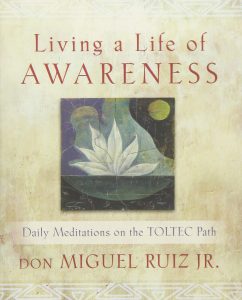
With all that being said, I got into this because of love. I love my grandmother. I love my father. That was part of the apprenticeship I gave them, but I had a moment of heartbreak where I no longer projected and actually began to apply for the work when I was 27 years old. I was in the middle of working in the film industry. Around that time, my father suffered a massive heart attack. That left him with 15% of his heart capacity. I stopped working in the film industry and helped my father because he could only speak for about 10 or 15 minutes. He would look at one of us to go and help him. Then we’ll look back at him to let us know he’s not ready. If he was ready, he’ll take over. If he wasn’t ready, I just kept talking. That was when I was 27–28 years old.
Back then, I ran out of things to say in 15 minutes. Little by little, I just got longer and longer and longer. As I began not to be a parent, not to be a cover band. I was actually putting into practice what I’ve learned of the family tradition and putting it into my own words, through my own experiences, and not what I was sharing. I was sharing my experiences. I was sharing how these traditions taught me, how these traditions have helped me, and that’s how little by little.
In 2004, I ran out of things to say in 15 minutes. Last year, I did a workshop in omega that lasted five days, and I ran out of things to say. After doing about a good 48-50 hours of workshop, I ran out of time because I ran out of time. So, that’s how little, by little, by little. In writing all the books I’ve written, I’ve written five books. I’m writing my sixth one as we speak. It’s been tangents. For example, I wrote The Five Levels of Attachments, which is my grandmother’s teachings to me about attachments. The question, “Do you control knowledge or does knowledge control you?” and being able to answer that in different stages, my attachments to things.
Growing up, I learned that we attached our beliefs to something and it narrows our perception. Then learning how to let go. I’m describing going from level five to four, from four to three, and from three to two, I started going off on a long chapter. My publisher stopped me. It was like, “Wait, you’re breaking the line. You’re starting a whole new thread here. Let’s cut that off, hit save on that. Finish your thoughts here.”
It takes discipline not to let a tangent take this out of the line.
When I finished the book, you have a line. I ended a book the way I ended a movie. I have a line that goes altogether. I have line editing. Once that’s saved on this thing, I look back at the thing I saved and begin to work on it, and it’s The Mastery of Self. Then I found that- very similar to how my father went from The Four Agreements to Mastery of Love- we let the thoughts expand, and continue. When we’re writing a book, we let a thought finish. It takes discipline not to let a tangent take this out of the line. At least we have an editor or a publisher to help us with that. Little by little, that’s how we’ve gotten to a point where we’ve written all these books, my brother, my dad, and myself. It’s just letting our experience continue.
Like what my grandmother said, “If you practice a total tradition the way your father or I do it,” I’m paraphrasing my grandmother here, “you’re killing the tradition. You have to do it your way. The way is that you put all these lessons into practice. When you do that, life becomes the teacher.” That’s how we stopped being parrots. We repeat verbatim. We apply the lessons in life and life will return those in experience.
One of the Four agreements is to always do your best.
You know what, I have to say something here. I was really impressed. When I asked you the question before we started recording. I asked you, what would make this the best podcast interview you’ve ever done? Your answer was simply that, “I’ll do the best that I can.” Or something to that effect which is one of the four agreements, to always do your best. I recognize that. I was really touched by that because you are embodying the teachings that you’ve got from your family. It just seems so natural. I just noticed and I was really impressed.
Thank you. I appreciate that. Thank you so much.
By the way, I met your brother, Jose, at the Conscious Life Expo. He was giving a workshop that we attended, my wife and I. It was great. You’ve got an amazing family.
Out of those dark times, we can either let them sink us or we can use it to help us.
Thank you. We like to share our experiences. We all go through our dark times. Out of those dark times, we can either let those dark times sink us or we can use it to help us. Once it helps us, we can share that experience of how we got out of it with others. It might help them that way.
When you shared that experience that you went through at 27 years old, it reminded me of something I learned from my wife, Orion. It’s always a gift, just sometimes the bow’s on the bottom. In that case, that was heartbreaking and very difficult. It allowed you to step into your greatness. There was an incredible gift there. Even people passing away, we put so much heartache into all these events that there’s also a gift.
When my mother passed, which was heart-wrenching for me, she passed on some books that I would never have noticed or paid attention to. I was going through the storage unit and one of them was on, I forget the name of it exactly, but it had the word hormones in it. It turned out to be very important to my wife, Orion. We never would have had the book or known of it or anything other than her passing away. We have a beautiful baby now in part because of the start of that process. I mentioned this to you before we started recording, he was a miracle baby. Part of the miracle was how she was able to conceive when she had very low hormone levels. Incredibly low. Pretty miraculous. Everything happens for a reason, I always believe that.

I agree with that. I used to have such a push back without expression, everything happens for a reason. But as I’ve gotten older, it always reflects back and it’s true. It happens for a reason. You never know. It’s always that intent to move the story forward.
Someone asked me once if the mastery of self is to always be happy, and I said no. Something my grandmother taught me is that life always throws a curveball. If you want to make God laugh, tell all your plans. That’s how she always said it.
What makes you the master of yourself is when you stop pretending to be something you are not.
In the mastery of self, what makes us the master of yourself is we stop pretending to be something we are not for the sake of someone else’s point of view or judgments or prejudice, including our own. We begin to see ourselves for who we are at this very moment. This is how I feel, this is how I experience things, this is my reality, this is what I have, and this is the play I get to work.
What makes me the master of myself, in that regard, is first I accept who I am. When life gets good, it’s the thing that allows me to enjoy it, to have fun with it, to appreciate it, to not take it for granted. Because the other part that helps to not take it for granted is life sometimes gets tough. It’s hard. As a parent, you’ll find out all about it. We go through our ups and lows. But it’s when life goes in those lows, that when we put into practice everything we’d learned to move the story forward. That’s really when we apply all the lessons we’ve learned. In my case a total tradition, but every teacher I’ve ever had in my life and told how to take a step forward.
It starts with acknowledgment, the awareness of self.
That’s the thing, is that we’re alive, anything is possible. All that matters starts with that first acknowledgment, the awareness of self. Once we’re aware of where we’re at, we ask ourselves, “Okay, what direction do I want to go in? What do I want to create with this? Where do I want to, not fix it, but how do I want to resolve this?” Somehow it’s different. Fixing it and resolving it is somewhat different. Resolving it is, this is how I feel. How do I create a result that I want? Fixing it is keeping the result I wanted from breaking apart.
But if you realize this is where the stitch is, it’s falling apart because it’s no longer the truth. It’s no longer really relevant in life. It’s something that I’m doing my very best to maintain right now, but it’s just an illusion. It’s that moment to let it go and see how can I reset the button and how can I start anew? We let go of the things that are no longer working and it’s not working because it’s not its time yet. But at that moment, of like I want this, I want this.
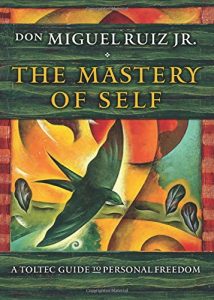
When I was 28 years old, after a year of putting into this practice. I was working in the film industry and I saw that this could be my last job, this could be my last job, this could be my last job, which is something that happens in the film industry. What do I want? What do I want my 30s to look like? Well, I want to be a father and a husband. What kind of father and husband do I want to be? One that’s there. All right, and then do that in the film industry. And the way I was working the answer was no. My shortest day is 12-hour days, it’s tough. Which side do I want to do? The other one was, I love it, but it doesn’t satisfy me. This side does. I switched careers.
I was lucky enough that I was working with my father and that helped along in that transition. But when I made that shift, it was when I met my wife. We fell in love, babies came. When I met her, I already made that situation happen. Similar to what you guys had to go through, acknowledging and accepting the truth of where you both were and how your bodies were handling it. That didn’t stop you, you follow in a way. That’s the miracle. We create miracles by following our intent.
A teacher once taught me this: the key to enlightenment is effort. That’s it. That’s the key to enlightenment—effort. Since then that I’ve learned this, using the energy that I use to move my legs, to move my arms, to create a thought. That’s what effort is—putting one step forward. Discipline is remembering to apply that effort every day. That’s it. Forget about the drill sergeant in your head. Discipline is you’re simply making a choice each morning of each day to take that step. Success is actually following through on that effort to the point where here you are.
Now that we have the miracle, now that’s here, what else can we do? The beautiful thing about that question is that only we, I, or my beloved, or the group I’m with can enter it. But in my own life, only I get to answer what else can I do. The beautiful thing about the answer is I can do anything. I say it with confidence only because I’ve done it before, and I can do it again. To a certain point, that’s the key to having a purpose in life. It’s a beautiful thing.
In life, we love, grief and mourn. Each step helps us heal.
We have grief because we love. If we didn’t love, we would not have grief. It’s the most beautiful thing. Sometimes, the dark stuff happens in life because we love someone, something, or a situation, and we’re mourning it. It’s okay to mourn unless it gets to the point where we get attached to it or we get addicted to it, where we stop thinking to step forward. Why didn’t we take the step forward? Each step helps us heal. Once again, the thing that allows us not to take for granted that which we have in life.
So true. You mentioned your grandmother saying that tell God your plans and make her laugh and that was awesome. That reminded me of the teaching I got from Kabbalah. I’ve been studying Kabbalah for the last few years. It’s really beautiful. I had a few different Kabbalah teachers on this podcast.
Just be comfortable being uncomfortable
One of these concepts I learned that was really powerful is that certainty is not of this realm. Certainty doesn’t exist in this realm of existence. I’ve heard this before from other personal development gurus. It’s, “just be comfortable being uncomfortable.” In other words, be okay with the uncertainty.
This helped me come to grips with that to overlay that was done with this additional wisdom that certainly doesn’t even exist here. It’s just a fallacy that we tell ourselves. We go through the motions and we expect the same outcome every day. Get up in the morning, we do our morning routines or morning rituals, which by the way I’d love to hear what yours is, but that just gives us this false sense of security. It’s not real. What are your thoughts on that?
Without awareness, our domestication and attachments blur our perception. Share on XThat’s the thing, we try to hold on to the things that make us feel comfortable and that’s fine. Sometimes, as you said, get uncomfortable and the uncomfortable is actually what helps us transition. For example, right now I’m on day 21 of a cleanse where I stop drinking coffee. I haven’t had a simple carb in a while, eating bread, bagels or anything like that. Well, bagel’s not a simple carb, that’s a complex carb, but I haven’t had a bagel in a while. I’ve been losing my salt intake and sugar intake. Dairy, I stopped drinking 3½ years ago.
The letting go of coffee was an intense week. You can imagine that the headaches were intense. I like coffee, I enjoy coffee, it’s very nice and very comfortable. It’s a very good thing, especially after you let go of alcohol. Coffee is just one of those things.
The uncomfortable is actually what helps us transition.
I let go of alcohol because I have sleep apnea. Sleep apnea was intensified because when I drink alcohol, it relaxes my muscles so much that night I stopped breathing and I was waking up with heart palpitations. What was happening is that my muscles have gotten so relaxed that it intensified my sleep apnea. The heart palpitations were happening because it was trying to send blood in my brain. Now, the consequence of that could be a heart attack or a stroke. Because I don’t want that and I wasn’t really a heavy drinker, but I realize it was no longer worth the drinking. The consequence was no longer worth the effort, so I stopped.
Drinking coffee is also caffeine, but 21 days ago, I realized that I was drinking coffee and even though I liked it, there were days where I took a cup of coffee only to avoid that headache of not having coffee. Also, I realized I don’t want that to have that much power over me. I didn’t like that. I got to the point where, “Wait a minute, I do like coffee, but it definitely has a little power over me because I don’t want a bad headache. So now I’m consuming it because I want to avoid something.”
That was an attachment.
That was an attachment, yes. I realize, “All right. You know what? I’m ready to let go of that,” because I was saying for a long time, “At least I have my coffee now.” But it wasn’t worth that anymore. So, one Monday I had my one last cup of coffee with my mom and dad, got on a plane, flew home, and came home where it’s a little easier to control it. For five days, the headaches were gnarly. It was painful. My moods were not good, I was not fine, feeling happy, my temper was put to a test.
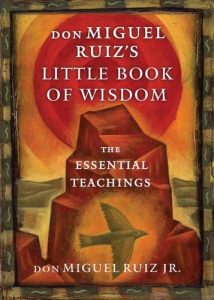
I was able to control it, of course, but when you’re not feeling good, your ability to control your emotions becomes a little complicated. But I was able to do it pretty good. So I survived that. But then, there came the morning where I woke up with such a fog. It wasn’t a headache, but it was a fog that I just felt a little disoriented, a little bit like that. And then the next morning, my last cup of coffee was on a Monday, the following week’s Wednesday, I woke up with no headache or fog. That’s nice. Not having the headache, not having the fog, and not having that craving. I was out. It’s been 21 days. I went to coffee shops with my brother and I wasn’t tempted at all. Only because I know that that headache was not worth the consequence of taking that cup of coffee.
Now, I’m at a point where I feel so much better. I feel good. All of a sudden that discomfort gave way to comfort. The only difference was my body healed itself or simply was feeling better. Now I have energy. It’s incredible. I’ve reduced all that stuff during the cleanse. I’m still going kickboxing. I’m running my five miles because I have run marathons and half marathons. I’m training for a half marathon right now.
One of the biggest illusions broke apart. Also, I realized, I don’t need that much fuel in order to do that. I was eating a bagel and something else just all of these, I was overcompensating a little bit. But then I realized my body can do more than I thought it could do. Of course, I need food. I’m going to have some nutrition before I go for a run. I’m going to take the protein, I’m going to eat an avocado, I’m going to take that smoothie that I have. Then about an hour later, I’m going to go for that run and I’ve run five miles. I proved myself wrong, I proved myself on self-doubt.
Let us prove our self-doubt wrong.
That’s the thing. One of these is why I run. I’m able to cross thresholds when my self-doubt tells me I couldn’t cross. I enjoyed proving my self-doubt wrong. Based on that experience with running, letting go of alcohol, letting go of coffee and carbs, the simple stuff. This morning, I feel phenomenal. I haven’t had a cup of coffee and I don’t need it to have the energy or to wake up.
You were asking me before, what are part of my ceremonies. I wake up at five twenty in the morning because my son’s school bus picks him up at six thirty-five in the morning and my daughter’s at six forty in the morning. We get up, my wife and I, she goes downstairs, gets breakfast ready. My son has autism, by the way. I help him get ready. I don’t actually physically change him, but I’m basically giving him the non-verbal props to put on his clothes, do his hair, shoes, bathroom, and then go downstairs. He can relax, having breakfast for half an hour. At that time, I get ready, and when I go downstairs, I’m ready to walk him and my daughter to the bus stop
When I come back, my wife and I have half an hour of sitting there together talking. That part was important because normally that’s when we would have a cup of coffee. That was part of our thing. When I used to have wine, it would be wine. She and I would have a glass of wine and interact that way. We let go of that wine and we found a way. Now we let go of coffee, I let go of coffee.
Now, I’m reinventing the way. We have that half-hour together. To me, that half-hour is important because it’s the one-half hour of quiet my wife and I have together. It’s like checking in, it’s like engaging each other, listening to one another. She tells me, I tell her, and it’s wonderful.
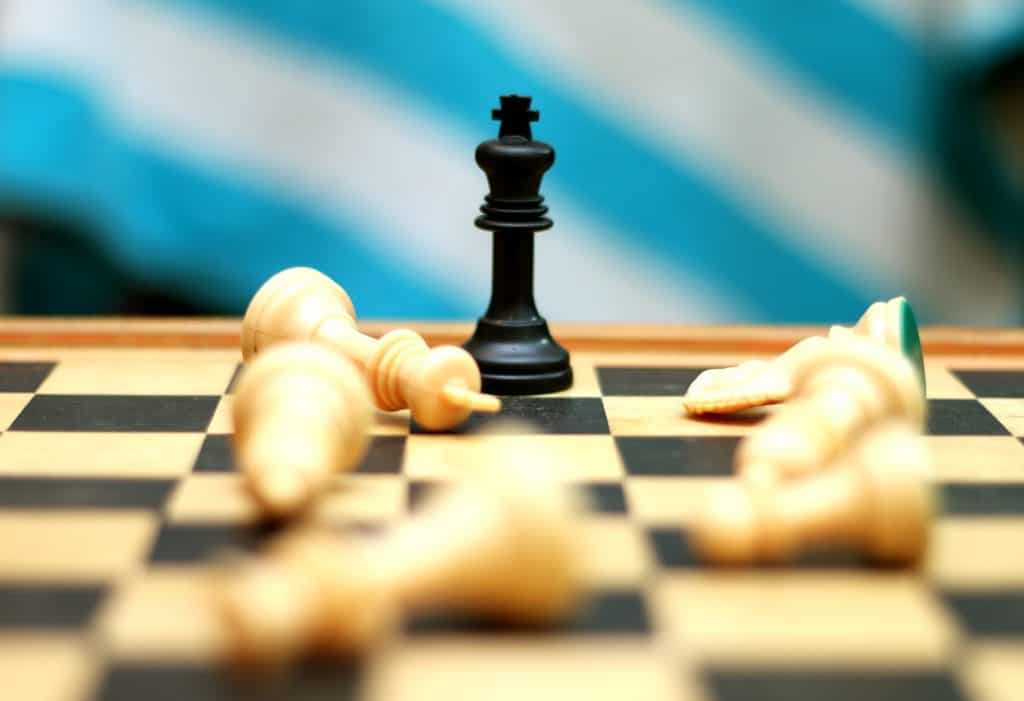
Over the last few years, we’ve diminished and taken out elm, that we thought we needed that for that. Now, we don’t need that. The relationship is strong. Going back to it all, those little morning routines that I do is to remind me that out of the discomfort at the end, there’s a threshold that you cross, that you thought you couldn’t cross, and that reminds you of how strong you are, of that confidence you have of yourself, that you don’t need those crutches to do those things that you thought you needed to do. You can do those things and find new ways to get there.
Being able to cross a threshold, which you thought you couldn’t, will remind you how strong you are.
Of course, I run, I take my dogs out for a run or a walk, I work on the book, I do interviews, and sometimes I watch documentaries on the TV when I have those simple times to myself. But when I come back from traveling, because I tour a lot, the thing that helps me ground myself is doing laundry. There’s something about doing laundry that makes me feel at home. I wash the dishes and I do the laundry. There’s something about doing the laundry that calms me, makes me feel at home, and centers me. It’s interesting.
The things I do for my family. Like when it snows, for example. Here, if it’s a snowy day, I skip some of the things I just told you about. I put on my jacket, I put on my clothes, and I start shoveling the snow because I know that the sooner I shovel- because it’s still powder- if it’s still powder, it’s easier to shovel than when it turns to ice or gets slashed in, it’s really hard work. But I will still do it because there are kids that walk to the bus stop, that go through the house. I want to make sure that the pathway is clean for them and my family, of course.
There’s something about giving and doing it. It’s calming, but at the same time, just like doing the laundry, there’s a silence and a quietness that comes to shoveling snow that brings peace to me. Activities like that center me. Shoveling snow, doing laundry, doing the dishes, walking the dog. The little mundane things in life and they’re for service. I’m of service to my family and to my community in my own unique way.
Delegate everything possible that’s not your unique ability.
I can relate to that, by the way. There’s this kind of conventional wisdom with “successful people” that you want to delegate everything possible that’s not your unique ability, that’s not your core, how you make money, etc. I remember Dr. John Demartini explaining it. He’s not made a meal in decades. He doesn’t like it, he won’t do it. He just doesn’t do it.
There are certain aspects in my life that might seem mundane where I could just pay somebody, pay a service like grocery shopping, I really enjoy. Especially when my wife, Orion, comes with me, we have just a wonderful time shopping together. We don’t do that so much now with the baby. It’s either one or the other of us, but I still enjoy grocery shopping. I’m way enjoying it more when she’s with me but I wouldn’t want to just give that up and have a service deliver all of our groceries. It kind of cuts you off from your humanity, I think.
I’m totally with you on that one. There are things that remind us. The things that my mom, dad, and my grandma made me do when I was young, it was such an “Argh, I have to do this chore.” But now, those same chores are the things that make me feel happy. It’s nice. When I work, too, when I’m working and doing a presentation and a lecture, I still get the butterflies but something about those butterflies allows me to really do the work I do.
The things that keep us humble reminds us that we are human.
In fact, every time I go into an interview, I get nervous right before. I’m like, “Is this going to be the one that all of a sudden I forget everything and I draw blank?” and I’m like, “What did I just say?” It’s the things that keep you humble. It’s always nice to feel humble. It reminds me that I’m human, just like you said.
So true. I still get nervous in front of TV cameras. That makes me nervous.
If you have a camera or an audience, things come out easier. But if you didn’t have an audience or a camera and you have a recording device in your hand or something, you’re like, “Take one, take two, take three, take four, take five.” It doesn’t come out as fast because there’s not that sense of urgency. “I can edit, edit, and edit.”
There’s something about a live television camera or even just a recording of a camera in an interview setting or something like that or a production setting as well as an audience, that all of a sudden it’s like you jump into the pool and there’s no turning back once you’ve done that leap. You’re going into that water and you’re going to swim.
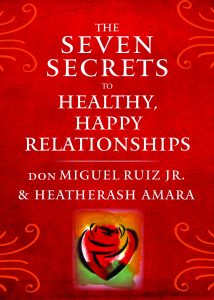
That’s a great point. What distinguishes it for me that if it’s a live TV appearance, that’s a whole other level of nervousness and everything’s on the line. I get into the perfectionism state when I’m recording a podcast episode where it’s just me and I have the ability to edit myself and to restate it or whatever, I just become this perfectionist.
I’ve only recorded one episode, this was my other show, Marketing Speak, where that was just a solo episode. Everybody loved the episode but it took me probably three times longer than normal because I kept self-editing and being a perfectionist about it. It was kind of painful. I don’t think I want to do that. I just get into a flow state when I’m talking to others and it’s a conversation. I’m communicating instead of just presenting.
There you go. I have the same problem when I’m writing. It’s one of the things that I have to learn to let go because it would take so many hours to write two paragraphs and the reason why is because I was editing and editing. It took a while to learn to write with the heart and edit with the mind, which is to learn to trust myself and purge all my words and just write, write, write.
It doesn’t have to be grammatically correct, it doesn’t have to be profound, it doesn’t have to be great, it doesn’t have to be relevant. Just let all the thoughts go, go, go. You finish. Fix it. Walk away. Come back an hour or two later and hit copy and paste. That way you have the master. Never touch the master. That’s something I’ve learned from working in the film industry. Never touch the master. You edit the copies.
I started editing. I edit it with the mind because now, I’m translating it to the soul so that someone else can understand. The first audience of a manuscript is myself. That’s why that first transcript, that first manuscript is so disheveled and so chaotic. I’m doing the holes in my own mind. The audience is me.
When you put all the lessons you learn into practice, life becomes the teacher. Share on XWhen I’m editing with the mind, the audience is no longer me. The audience is my reader and my reader doesn’t have me to be there to answer the questions. The book has to answer that as much as it can. You begin to translate it into a language that someone else can understand. That’s where you edit with the mind. The most difficult part was always the first thoughts, especially when I first started writing because I would spend hours writing two paragraphs.
In creating a work of art, you have to let go of it being perfect.
I learned to purge and I learned to record my classes like the one we’re doing right now and from there, transcribing it and then editing that because that was the purge. Like you said, there’s something about being in front of an audience where the conversation happens and you have to let go of it being perfect because you don’t have power over the edit of it. It’s live. You jumped into the pool and there’s no turning back from that jump. You’re going to get wet.
The splash and the movements sometimes create amazing things. That’s how you edit. That’s how you write. That’s how you make a film. That’s how one creates a work of art. I’m going to quote Dave Grohl here from Foo Fighters, “The willingness to suck, to be terrible, the will to be terrible.” I don’t know if it’s illustrating when you use that word.
That’s great. I think it ties into attachment, too. If you’re attached to always looking good and not looking bad, you hold yourself back and you don’t bring your greatness into the world.
Exactly. You set yourself up for doing your best. That’s how I see it. For example, I move the computer from that place to here because the lighting is better in this sense. Now that that part is set, I can move around and do all these things.
I wonder if you could spend a few minutes talking through the five levels of attachment and how our listener could apply this to his or her life.
What makes it tough is when the time comes to let go, we can’t.
Sure. Let’s imagine a flower called awareness. An attachment is investing in yourself emotionally, intellectually, or energetically into something. You make something that’s not a part of you. That’s what an attachment is. Mind you, there’s nothing wrong with an attachment. What makes it tough when the time comes to let go, we can’t. There’s attach and detach. With that in mind, and my grandma’s question, “Do you control knowledge or does it control you?”
Level one, the authentic self. Imagine a flower that’s completely open. The answer to grandma’s question is, “I am a living being regardless of what I know, regardless of what I think, I know I am alive. Who I am, what I am is simply the experience of being alive.” That’s it. I don’t need anything else to know who I am. Awareness is the communion with my environment and with myself at this very moment. So, I’m open. This is level one, the authentic self. The individual that lives at this very moment.
Level two, preference. My mind is so powerful that I can go in any direction in life. So, out of all the possibilities, I like this one. That’s my preference. I’m going to use knowledge as an instrument, that’s going to allow me to go in that direction in life, my preference in that life. So you could say, I engage a moment.
Be aware of your authentic self, use knowledge to inform your choices, but be the one to make the choice.
The answer to my grandma’s question is, “I am aware of my authentic self, and I’m going to use knowledge as an instrument to inform my choices, but I’m the one making the choice.” Imagine you engage a moment and when the moment’s over, I’m able to disengage. Attach. Detach. Attach. Detach. Attach. Detach. Engage. Disengage. Very natural in life. She didn’t read notes like this. In San Francisco, New York City, it goes like that. It’s natural.
Level three, identity. Imagine we engage a moment but when the moment is over, we’re not able to disengage. That is because now the best way to attach ourselves with something is to identify ourselves with that preference, whether the thing we eat, the book we read, the team we have.
The knowledge I have in the book is the stuff of a football team. Imagine that you go to a football game and at level two, when the referee blows the whistle to end the game, your detachment to the game ends, to the team ends. It means nothing about your life. You enjoyed the ups and downs of the game. If your team won, great. If it didn’t, oh well, next time.
It begins to impact when we identify ourselves with that preference.
But as the team who lost, would you enjoy the game? So when the referee blows the whistle to end the game, that’s the moment we detach. Imagine the referee blowing the whistle and we don’t detach. The winning impacts the rest of my week. It makes me feel good. If we lost, it makes me feel bad and I don’t want to look in the eye of someone who rooted for the other team or something. But it begins to impact me because now, I identify myself with that team or I identify with my preference so I engage it.
At that point, the answer to my grandma’s question is, “Knowledge and I are one. I know myself through what I identify myself. I think, therefore I am.” That kind of thing. There’s nothing wrong with this. You can say that the majority of the people in the world are here. It’s a slippery slope, of course, because at that point, we can use that identity to domesticate ourselves, to condition ourselves to live up to that image.
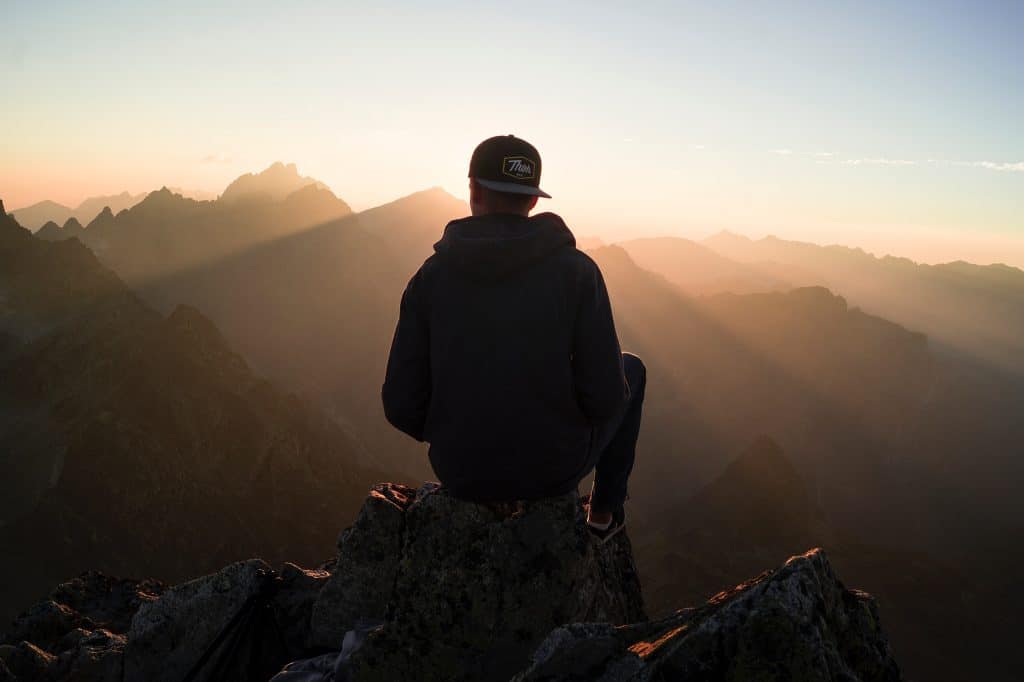
Domestication is a system of reward and punishment by which we model the behavior of an individual. If we live up to the expectation, we’re worthy of love, and if we don’t live up to the expectation, we’re worthy of the punishment. As emotional beings, that reward feels like acceptance, which feels like love, and the punishment feels like rejection, and the lack of love is the way we run conditional love. At that point, when we attach ourselves because of identity so much that we use it to model ourselves after it is when we begin to internalize that identity.
Knowledge gives me the rules which I live my life, know myself and relate to other people.
So the answer to my grandma’s question is, “Knowledge gives me the rules by which I live my life. It gives me the rules by which I know myself. It gives me the rules by which I relate to other people,” as that flower closes even more to a point where it leads us to level five, fanaticism.
Level one, the authentic self. Level two, preference. Level three, identity. Level four, internalization. Level five, fanaticism, where that awareness closes completely and everything I know becomes a filter that distorts my perception of life.
When our awareness is filtered, it corrupts what we perceive.
It started at level five. Level five really just feels solid. It tells me who to hate. It tells me who to love, who to reject. Do you follow the same team I do? You better behave. It represents the whole thing. It’s not passion, it’s an obsession. We let our beliefs dictate who we are supposed to be and we’re blinded because we can’t see beyond the tips of our nose because our awareness is dictated by our attached beliefs that are now filtered, where at level one, level two, even to a certain point level three, those filters let us see life as is, but beginning level three towards level five, it corrupts what we perceive.
So, how to let go? We have a moment of clarity. A moment of clarity without any action is just a thought that passes in the wind, but a moment of clarity followed by action becomes a pivotal moment in our life. We can use the four agreements. The fifth agreement, be skeptical but learn to listen. Is it true, what I believe in?
Just to sum it up, the truth exists with or without us. It doesn’t need us to exist, but a belief only exists for as long as you say yes to it. As soon as you change that yes to a no, it ceases to exist, which means if you give it scrutiny, will it survive your scrutiny? Meaning by that, if you give it scrutiny, is it the truth or is it a belief which is a distortion or an illusion, actually more than anything? It’s only a distortion because we have attached ourselves so much to that belief that it clouds our vision and it’s actually the filter that distorts our perception. But the truth doesn’t distort our perception.
The key to enlightenment is effort. Share on XWow. That’s powerful. Thank you so much for sharing that. I see some connections there with what you’re describing to Byron Katie’s The Work, where she’s got the five questions and the turnaround. It’s actually four questions. “Is it true? Can I know with absolute certainty it’s true? How does this thought make me feel? And what would life be like if this thought didn’t exist?”
Then to take your original thought, turn it around, come up with the opposite or multiple opposites like the thought is, “This person doesn’t like me,” then an opposite would be, “I don’t like this person,” or another opposite would be is, “Actually, this person does like me a lot.” And see if the four questions are more true for that turnaround thought than your original thought. It’s a really powerful process because of The Work and I’m guessing you’re aware of it?
No. You just let me know about it. That’s pretty cool.
That’s amazing. I’ve had her on this show, one of my favorite episodes.
Nice. I’ll have the list. I have to be honest with you, I rarely read self-help books or spiritual books. I mostly read history books and physics. Those are the two things I love. I love reading about history and biographies, and the history of humanity and things. Then I like to read nature but physics, I love reading books on physics. I just enjoy it so much.
Do you have a favorite book that you want to share with our listeners, maybe even a favorite documentary, too?

The book that my father gave me at the age of 13 is this little book called Demian by Hermann Hesse. It’s a very good book. It’s the book that my father gives us when we turn of age so all three boys, cousins, and other people who he has that relationship with. That’s one, Hermann Hesse’s Demian.
Carl Sagan’s The Varieties of Scientific Experience. I enjoy this book very much. I really like it. My favorite author is Neil Gaiman and the Sandman Series. I love Neil Gaiman’s Sandman. It’s comics. You could say I was a teenager when I began to read Neil Gaiman.
Another book I love is Cien años de Soledad by Gabriel García Márquez (One Hundred Years of Solitude). It’s a phenomenal book. I love this book. It’s very enjoyable. Amor Y Tiempo de Cora. That’s my number one book of all time since I was a teenager. It’s Love and Time of Cora. I just love this book. This is one of my absolute favorites. I think I lent it out, but I have its second part. I tend to lend books out.
Yuvan Noah Harari. He wrote Sapiens and Homo Deus. These two books together, I love. It’s phenomenal. I really enjoy these two books. He did a great job of explaining what we know in our tradition as the gene of the planet. He explained it very well.
In my personal life, of course, in relation to my children is The Autistic Brain by Temple Grandin. That’s helped me a lot to understand my son and a few other people in my life. Temple Grandin. As I was saying, it reminded me of another book. It moves around.
People have asked me to write a book about parenting and I thought about it. I thought about it because the book that I would recommend has already been written and it’s How to Raise an Adult by Julie Lythcott-Haims. She was the dean of admissions at Stanford University but this book about parenting is phenomenal. I really enjoy it.
I have many books I could go to. Documentaries, The History of Light. It’s a documentary made in Korea. It’s trying to explain Einstein’s theory of relativity and it’s a very, very good documentary. It’s about a 4–5 part documentary that was aired on NOVA on PBS. I really enjoyed that one. Of course, I like NOVA. I like that show. It’s a good one. I could keep going but I realize I might be running out of time.
No, this is awesome. Thank you so much.
It’s the first time I’ve ever done that. Thank you.
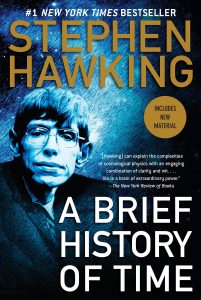
Cool, I really appreciated that. I’m curious if A Brief History of Time by Stephen Hawking is on your bookcase, too.
Oh yeah. A Brief History of Time. These are my new others. Astrophysics for People in a Hurry by Neil deGrasse Tyson, of course right here. Carlo Robelli right there. Carl Sagan. This one, Can’t Hurt Me by David Goggins. To me is one of the most inspirational books. He’s had a tough life, but how he pulled through this one, phenomenal. I love it very much. A Brief History of Time, yes I have it. I have that book.
Very cool. How about An Elegant Universe, you have that one?
Not yet.
Okay.
One I do want to read.
I take it you don’t read off of Kindle. You read physical books.
My eyes hurt when I read on Kindle or an iBook. The two ways I go through a book are either on audiobooks especially when I’m driving, but I like to read. This is my bookshelf and I have another bookshelf upstairs and I have another bookshelf over there.
What an inspirational human, Stephen Hawking was.
Stephen Hawking was phenomenal. May he rest in peace. I love the movie they made about him, but I really enjoy his writing. Anyway, these are my books. These are from Jane Austen to my biographies up here. This one’s Paulo Coelho’s in there.
We have grief because we love. If we didn’t love, we would not have grief and it’s the most beautiful thing. Share on XWell, I don’t have it, A Brief History of Time, on my bookshelf at the moment but I have it and it’s phenomenal. I love how at the end, he says, “All these theories that I’ve created have the greatest values as the one who may be heckled the professor that says the Earth sits on top of elephants.” They’re both just as proofs because it’s not the truth.
It requires a willingness to take each step, and patience and diligence to find out it’s the truth.
A theory only can explain as much as it can but not until it’s proven to affect us. That’s why I like the scientific method. Hypothesis, experiment, theory, fact. It’s a discipline. Most of us go from hypothesis straight to fact without doing any of the work but requires a willingness to take each step, and patience and diligence to find out it’s the truth. Don’t make assumptions.
Yes. Another one of those four agreements, number three.
Yeah, there it is.
Perfect.
Of course, there’s the book right next to me right now. This one is good because it’s both in English and Spanish. Every page has the Spanish and then the English. That helps.
That’s cool. I don’t know Spanish but it’s a beautiful sounding language.
Awesome.
Well, thank you so much. If our listener wanted to start with one of your books, what would you recommend? If they wanted to go to a website to learn more, follow you, and all that, where would you send them?
The family’s website is my father’s website which is www.miguelruiz.com. Mine is miguelruizjr.com. That’s my website. That’s our home. We’re active on Facebook, Instagram, and Twitter, but our website is our home.
Of my books that I would recommend, I believe The Mastery of Self. It’s my third book, but I have a very special relationship with that. It was my first baby. The Five Levels of Attachment, Living a Life of Awareness, The Little Book of Wisdom, and The Seven Secrets to Happy, Healthy Relationships. They’re all unique, they’re all nice, and they deal with different aspects. Mastery of Self, I would say, is the encompassing one so far. It’s my third book.
Perfect. Thank you so much, Don Miguel. This is wonderful and have a fantastic rest of your week. Thank you again.
Thank you, listeners. Now, take this and do something amazing with it. Don’t just listen for entertainment value. Apply this in your life and reveal lots of light. I’m your host, Stephan Spencer, signing off.

